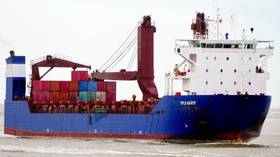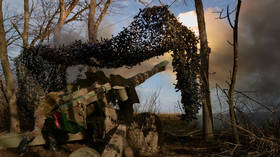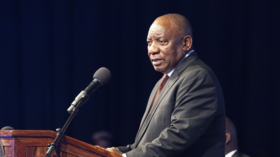Kremlin comments on alleged Norwegian refusal to save Russian sailors

The Kremlin has commented on claims that a Norwegian-flagged ship refused to rescue Russian sailors from a sinking vessel earlier this week. If this were confirmed, it would be an extraordinary case of negligence, spokesman Dmitry Peskov said.
The Ursa Major, a 142-meter freighter operated by a subsidiary of the Russian Defense Ministry, sank on Monday as it was sailing between Spain and Algeria en route from St. Petersburg to Vladivostok. Most of its crew escaped in a rescue boat and received assistance from a Spanish ship, but two members went missing, according to the vessel’s owner, Oboronlogistics. The incident occurred after an apparent “terrorist attack,” as witnesses reported hearing three explosions hitting the stern, it said.
On Thursday evening, the company claimed that the ship Oslo Carrier 3 was in the vicinity but refused to pick up the sailors, citing an unspecified “ban.”
“If there actually was a denial of maritime rescue, it violated all laws of the sea,” Peskov said during a media briefing on Friday. “That would be an extraordinary case that would warrant universal condemnation.”
After Peskov made his remarks, Bulkship Management AS, the Norwegian operator of the ship, said it had followed instructions received from Spanish officials managing the rescue operation. It was told not to take the Russians on board as another vessel was on its way to help them.
“The lifeboat was secured alongside our vessel until the rescue boat arrived,” the statement said. “The weather was good, none of the crew in the lifeboat were injured, and there was no imminent danger to them.”
International treaties and national laws of seafaring states demand that shipmasters render assistance to persons in distress at sea, provided that doing so would not endanger people and ships in their charge.
Earlier in the day, Deputy Chairman of the Russian Security Council Dmitry Medvedev described the alleged abandonment of the Ursa Major sailors as “unforgivable.” The incident showcases Russophobic attitudes dominating in the West, particularly in Europe, he claimed in a social media post.














